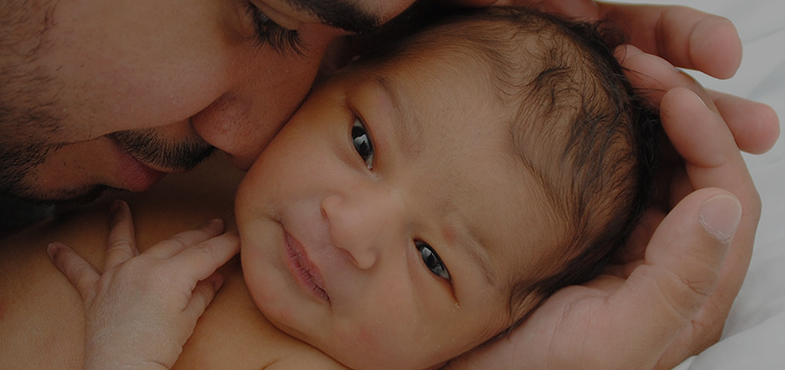Eczema & Dry Skin

Dry/Sensitive Skin
Baby skin is significantly thinner than adult skin in structure, composition, and function. Due to this biological design, babies tend to lose moisture nearly twice as fast as adult skin can. Baby skin’s buffering capacity continues to develop over the first few years of life, losing and gaining water more rapidly. This causes baby skin to have less natural moisturizing factors, resulting in dry and sensitive skin although it may or may not look fine on the surface.
Because skin dryness and sensitivity is often not picked up until the condition has flared up to eczema, it is important to identify symptoms early to prevent worsening of the condition. Early symptoms of dry or sensitive skin include mild redness, easily irritated skin or flaking of skin without broken skin. In the absence of this and if you are not sure if your baby has dry/sensitive skin, you may attempt a simple test. Gently use your fingernail and gently scratch your baby’s skin – do you see a white line or a faint reddish line? If yes, then your baby may be showing early symptoms of skin dryness and sensitivity.
*In a survey of 51 mothers, followed by clinical assessment and grading of their babies’ skin
Scroll below for some tips on dealing with dry or sensitive skin.
Eczema, or atopic dermatitis, is a chronic inflammatory condition that affects up to 20 percent of all babies. Eczema,is frequently seen in babies with a family history of eczema, asthma or allergic rhinitis. It is usually experienced as periods of flare-ups followed by periods of no or few symptoms. In babies, it often appears as a red, irritated, itchy rash on the face and scalp. In some cases, certain foods (such as cow's milk, eggs, wheat or oranges) may provoke a flare-up.
In babies, eczema often appears as a rash on the hands, face, neck, inside of the elbows and back of the knees, but may spread to other areas. Eczema rashes are associated with intense itching (pruritus). If the condition continues or is severe, you should definitely talk to your baby’s healthcare provider to understand if the condition is clinical eczema (atopic dermatitis) or dry skin, and to learn the best way to treat and manage. Here are some tips for dealing with eczema, as well as extremely dry or sensitive skin:
Avoid the things you think may cause itching, such as dust, grass, weeds, wool clothing and certain soaps, detergents, fabric softeners and perfumes. It may help to keep a diary to determine the cause
Give your baby short baths — no more than 5 to 10 minutes — in water that is warm, not hot
Use mild skin cleansers or shampoos specially made for babies with sensitive skin Be extra careful on areas often exposed to the environment
Dry the skin after a bath by patting with a soft towel, and then immediately apply moisturizer. Do not rub the skin
Moisturize frequently throughout the day, especially after bathing
Use an emollient cream, smoothing it into the skin in a downward motion
Although eczema can be an irritating condition, especially during periods of flare-ups, by following these tips, you can help to make your baby more comfortable.
Moms around the world trust JOHNSON’S® to care for their babies
We are committed to working with moms, healthcare experts and scientists to ensure our products continue achieving the highest standards in safety, quality and care.

More on Eczema
Visit BabyCenter® to learn even more about how to recognize and treat eczema, as well as everyday routines that can help make your baby feel more comfortable.
Related Articles

About Your Baby’s Skin
Your baby’s amazingly soft skin is a unique and essential shield that offers protection from the outside world—but it needs protection too. When you care for your baby’s skin, you also engage his senses, nurturing your bond and his healthy development.

Newborn Skin Conditions
If you notice something unusual about your newborn’s skin, don’t fret just yet. These common newborn skin conditions are generally harmless and go away on their own.

Baby Umbilical Cord Care
Your baby’s umbilical cord will fall off in about a week, or so, after you bring him home. Until then, be sure to keep it clean and dry.

Keeping Baby’s Skin Healthy
Your baby’s skin barrier is his first line of defense from the outside world. To remain healthy, it’s important for the skin to be properly hydrated. Be sure to keep his skin moisturized to help protect against dryness.